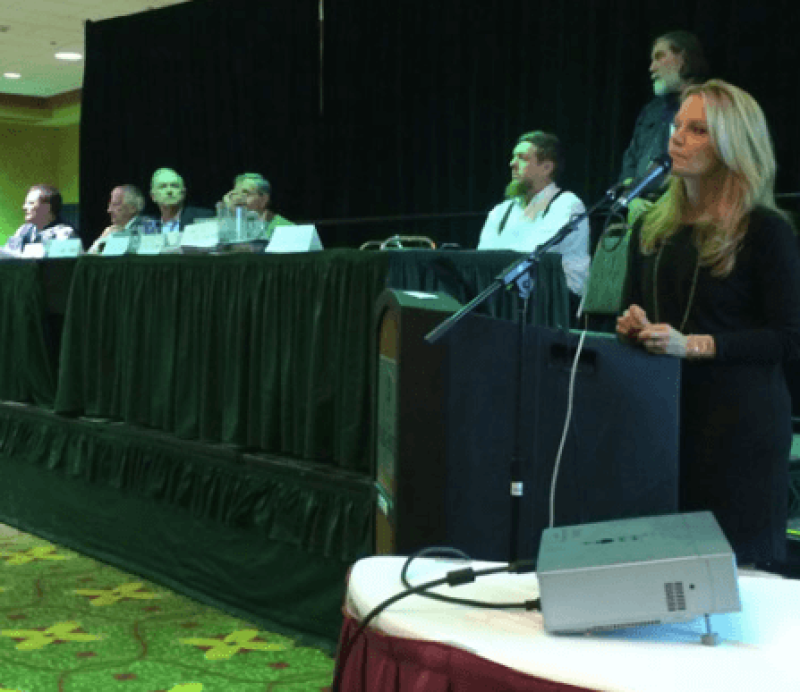A “GMO Plenary” held last month in Missouri featured a panel of anti-GMO activists who discussed multiple health and environmental risks with genetically modified crops and foods and glyphosate herbicide.
The plenary, which was held at the Missouri Organic Conference in Springfield, Missouri, featured scientists, crop advisors, farmers, and celebrity educators.
Conference organizer Sue Baird said the plenary was purposely held in Missouri as a counterweight to the pro-GMO influence of St. Louis-based biotech giant Monsanto.
Glyphosate dangers
Robert Kremer, a microbiologist with the University of Missouri, discussed negative environmental risks with both GM crops and glyphosate herbicide, which is used extensively with the crops.
Kremer listed a range of negative impacts from glyphosate herbicide, including harm to beneficial soil microbes, increase of soil pathogens such as fusarium fungal toxins, and immobilization of nutrients such as manganese.
“Glyphosate creates a proliferation of pathogens in the soil,” he said.
Kremer criticized the biotech industry’s “solution” to weed resistance to glyphosate, which are new GM crops that work with 2,4-D and dicamba herbicides.
“2,4-D and dicamba resistant crops may make plants more susceptible to disease. This obviously won’t be a sustainable approach,” he said.
Glyphosate found everywhere
Iowa farmer and crop consultant Howard Vlieger also focused on harm caused by glyphosate. He said the herbicide is everywhere—in the air, waterways, and rain—according to the US Geological Survey. It’s also found in many food crops and foods, such as Froot Loops cereal.
“What will it take to wake people up?” he asked. “You and I.”
Read full, original article: Expert GMO panel—held in Monsanto’s home state— speaks out about GM food, glyphosate dangers































